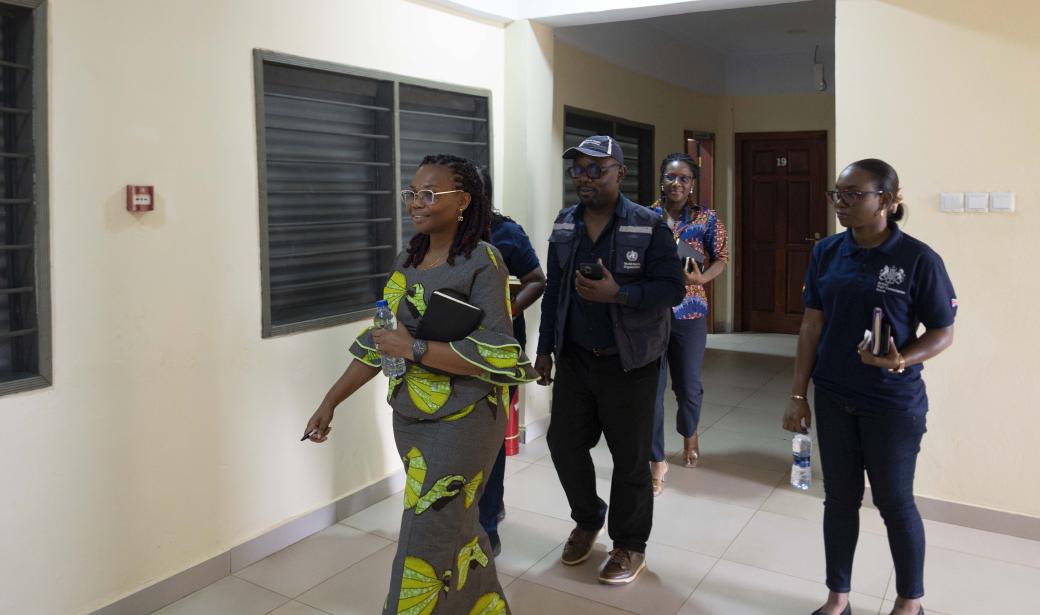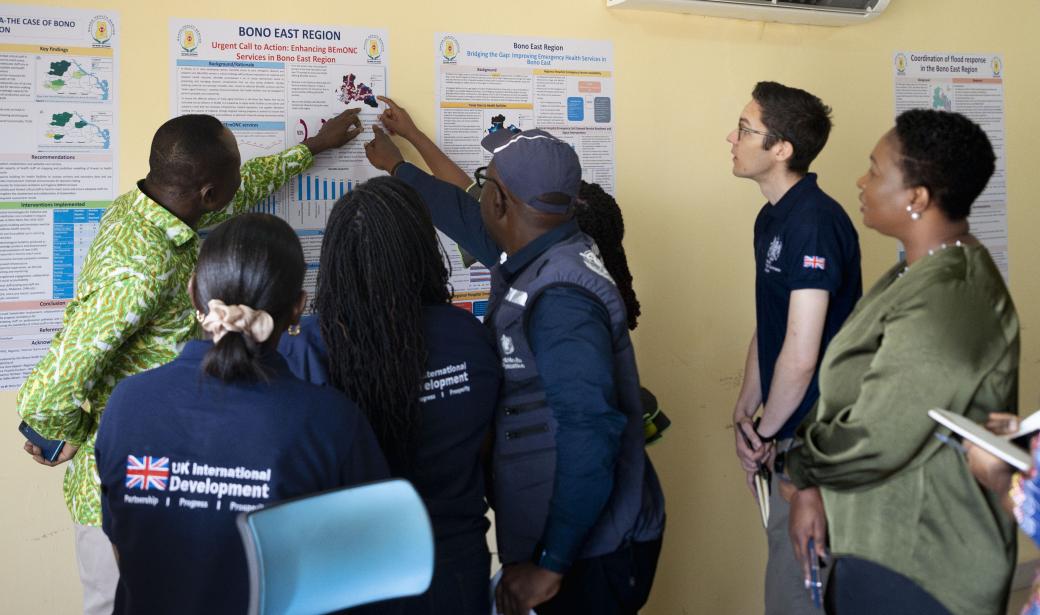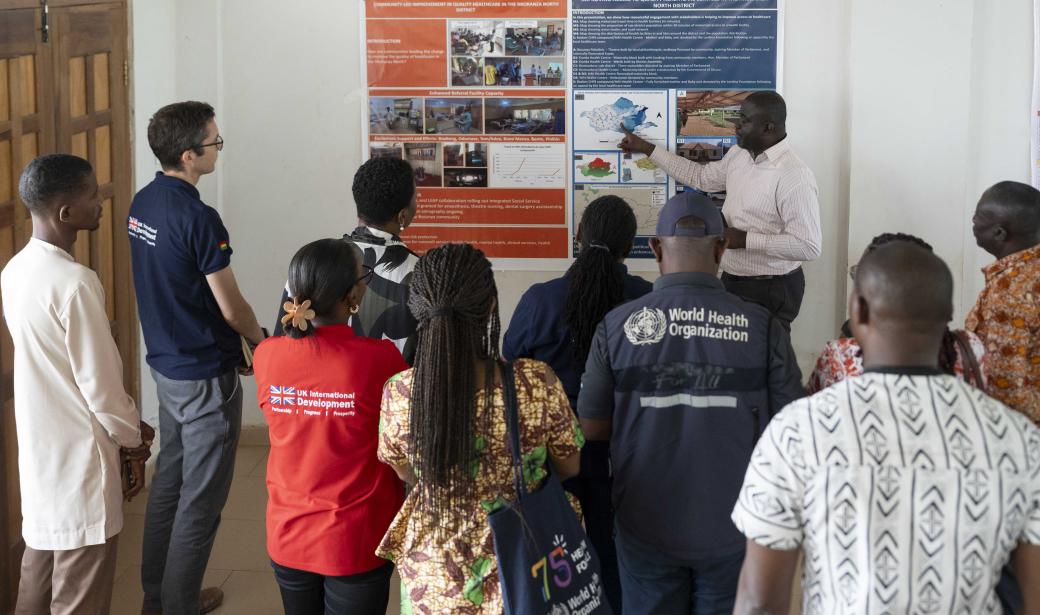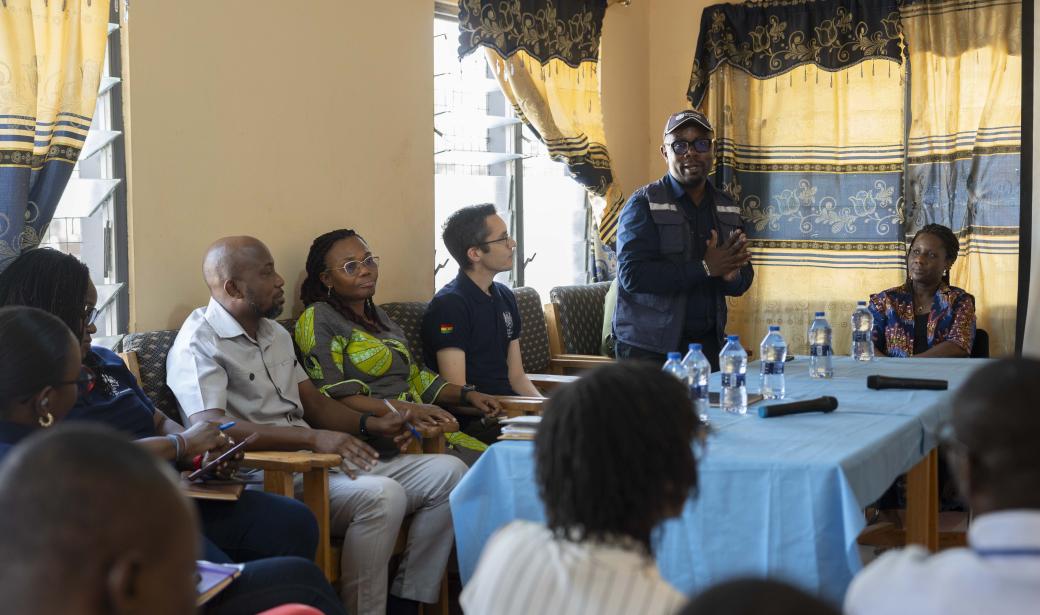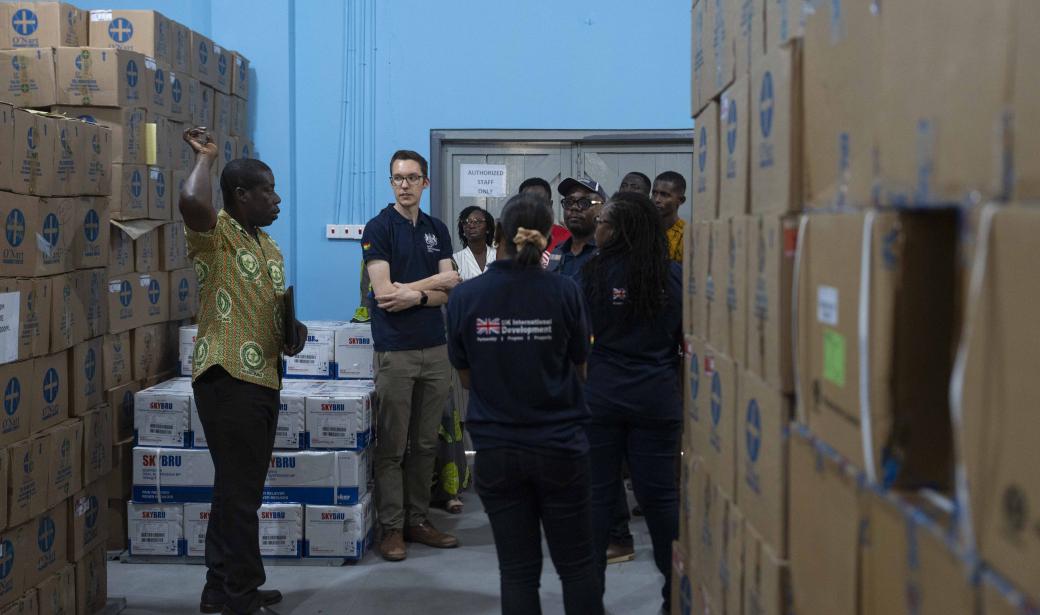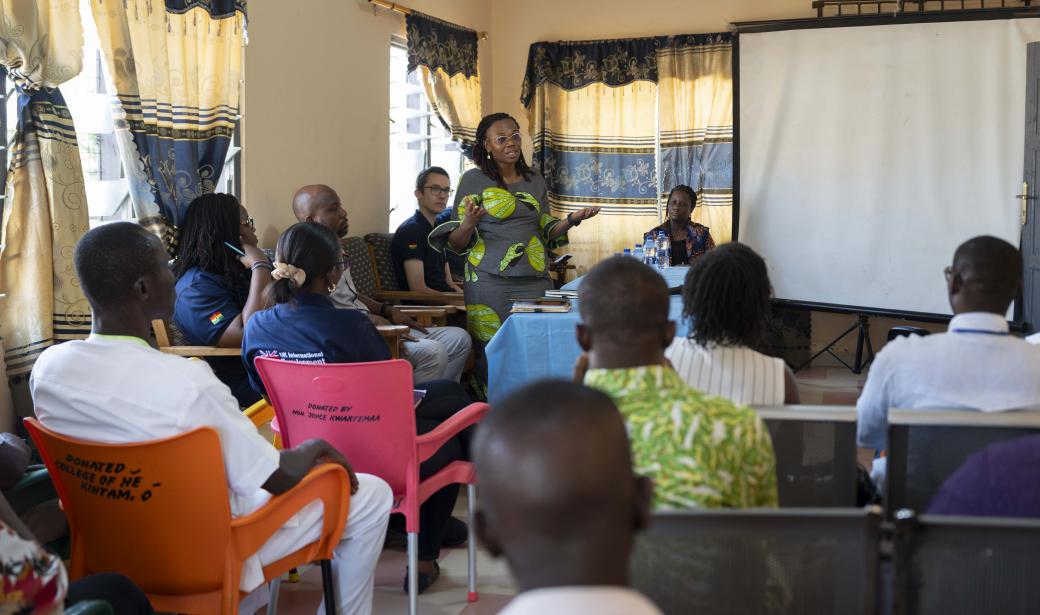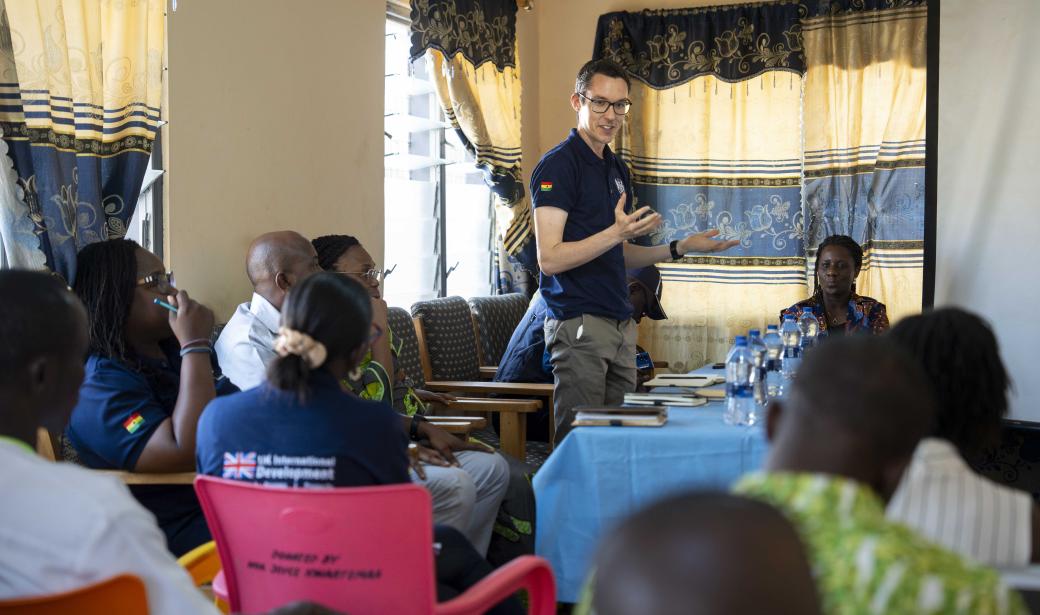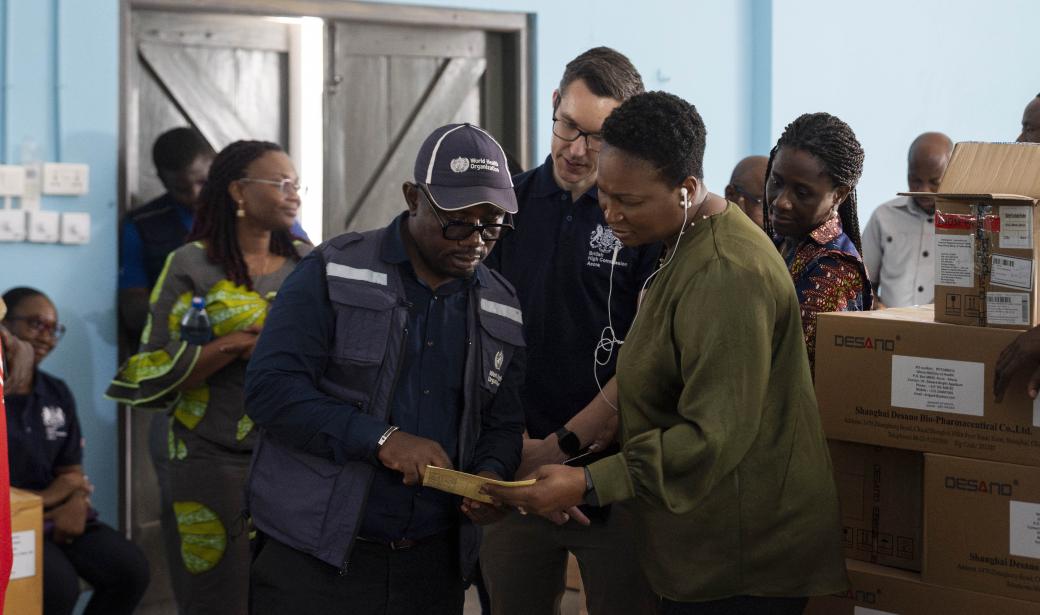In Bono East, a region characterized by sprawling landscapes, remote communities, and bustling highways, access to healthcare has always been a challenge. With a population of 1.2 million spread across 25,000 km², the vast distance to health facilities, coupled with high rates of road traffic accidents, paints a complex picture of healthcare delivery. Yet, amid these challenges, a story of resilience, innovation, and transformation is emerging—thanks to the partnership between the World Health Organization (WHO), the United Kingdom Foreign, Commonwealth, and Development Office (UKFCDO) and Ghana Health Service (GHS).
To witness these changes firsthand, a team from WHO, UKFCDO, and GHS visited Bono East, uncovering the remarkable strides being made in healthcare delivery. Over two days, the team engaged with health workers, community leaders, and regional officials, learning about the impact of the partnership and the resilience of local communities in overcoming healthcare barriers.
At the heart of Bono East’s transformation is AccessMod, a powerful WHO tool provided to the region through the collaboration between WHO and the UKFCDO. AccessMod is an open-source tool developed by WHO to help regions and districts perform more precise analyses of key factors influencing service delivery. It provides accurate estimates of distances and travel times to service delivery points, while identifying potential physical barriers that may restrict access to essential services based on facility types and levels.
In Nkoranza North District, health workers shared how training on this tool allowed them to identify gaps in healthcare access. The results have been transformative: new healthcare centres are now being established in previously underserved areas, driven by evidence-based planning and the unwavering support of local communities.
Dominic Atweam, Strategic Health Information Officer at WHO Ghana, highlighted the importance of synthesizing data to create actionable knowledge products, stating: “AccessMod and other WHO tools are revolutionizing healthcare planning and implementation in Bono East. By identifying gaps and optimizing response strategies, we are ensuring that everyone, regardless of their location, can access timely and quality healthcare”.
In a region where road traffic accidents are prevalent, the AccessMod tool has been instrumental in optimizing emergency response strategies. By developing knowledge products that map healthcare access, health workers have gained crucial insights into areas of high need. These products enable the efficient deployment of resources, such as ambulances, medical supplies, and healthcare personnel, to regions with the greatest demand. This data-driven approach ensures that emergency responses are not only timely but also targeted, improving the overall effectiveness of healthcare delivery in critical situations.
Dr. Paulina Clara Appiah, the Bono East Regional Health Director, highlighted the impact of these initiatives. “Thanks to the training and tools provided by UKFCDO and WHO, we are now able to plan with precision. We are not just identifying gaps but closing them. Communities that once struggled to access care are now receiving timely and life-saving interventions”.
Dominic Farrell, Health Advisor for UKFCDO, expressed joy in the outcomes of the collaboration. “What we’ve witnessed in Bono East is a testament to what’s possible when partnerships are grounded in trust, innovation, and community engagement. These results show that with the right tools and training, we can make healthcare equitable and accessible for all.”
As the tour concluded, the atmosphere was one of hope and determination. The stories from Bono East serve as a powerful reminder of the impact partnerships can have in transforming lives and building resilient health systems.
This journey in Bono East is not just a story of impact—it is a blueprint for how collaboration, innovation, and commitment can drive sustainable change, ensuring no one is left behind.
For Additional Information or to Request Interviews, Please contact:
Abdul-Lahie Abdul-Rahim Naa
Communications Officer
WHO Ghana Country Office
Email: abdullahiea@who.int
Tel: +233 20 196 2393
This journey in Bono East is not just a story of impact—it is a blueprint for how collaboration, innovation, and commitment can drive sustainable change, ensuring no one is left behind.
For Additional Information or to Request Interviews, Please contact:
Abdul-Lahie Abdul-Rahim Naa
Communications Officer
WHO Ghana Country Office
Email: abdullahiea@who.int
Tel: +233 20 196 2393



